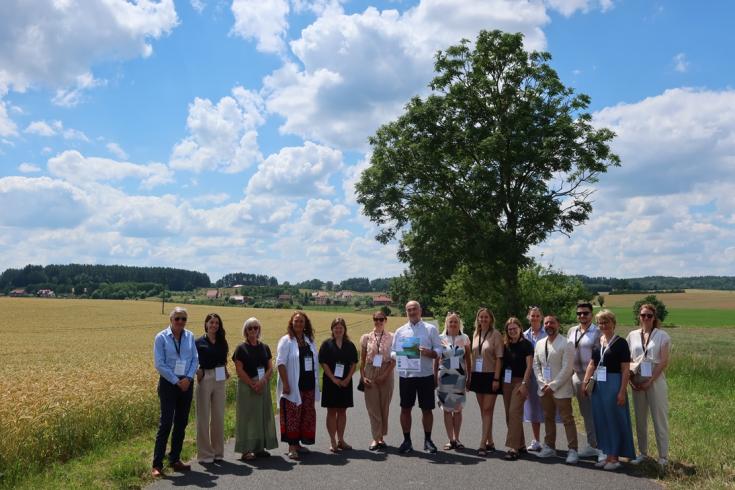Project summary
Smart development of rural areas is key for the future of Europe. Digitisation and the chance to explore the potential of Information and communications technology (ICT) are key factors to enable rural communities to become smarter, ie more attractive for locals, visitors, and newcomers, countering the circle of depopulation and economic decline via the improvement of Policy Instruments (PIs) towards a more focused and more integrated territorial planning, possibly going further beyond the sectorial aspects of European Regional Development Fund (ERDF), European Agricultural Fund for Rural Development (EAFRD) and European Social Fund (ESF) to the benefit of local people and business.
INSPIRE partners work on LEADER, Regional investment for growth and jobs programme (ROP), European Social Fund (ESF), and local and national Policy Instruments (PIs) to inspire a smart transition in aware and forward-looking rural communities enabled by digitisation and working in the 6 dimensions of the smart-village rationale (Economy, Environment, Governance, Living, Mobility, People), improving the PIs to future-proof their communities and inspire others. The partnership includes LAG South Warmia+Olsztynek (PL) as partner Leader, and other partners: Ballyhoura (IE), IFLS+Lahn-Dill-Wetzlar (DE), IFKA (HU), Zemgale (LV) and Cantabria (OPE and RMEF, ES). The goal is to enhance and integrate their Policy Instruments (PIs) and to enable smarter Policy Instruments (PIs) for rural areas, aiming to improve inclusive living conditions and foster more innovative enterprises.
Poliedra is the project’s Advisory Partner and Communication manager, and it manages the interregional knowledge exchange with interconnected meetings among the partners, namely Interregional Workshops (IW), Study Visits (SV), Regional Stakeholder Meetings (RM for the involvement of local actors) and leads contacts with Macroregional Strategies and with other smart-rural projects.
The enhanced Policy Instruments (PIs) will incorporate the lessons learnt in the knowledge exchange process and will aim at proposing newly focused, smarter, more territorialised, and wide-ranging PIs for rural areas. It is also the aim of INSPIRE to work in the New European Bauhaus framework, towards rural territories that are enriching, sustainable, and inclusive, responding to local needs beyond mere functionality, in harmony with the environment, and encouraging social dialogue.

